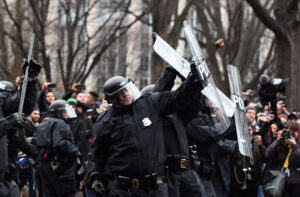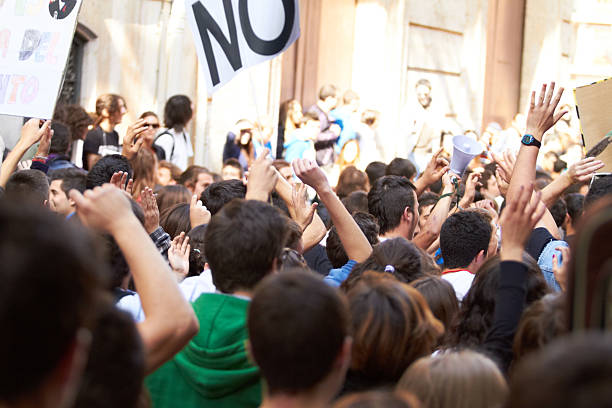
A lot of questions about the vital judgment calls that get made by government attorneys get waved away under the hopeful banner known as prosecutorial discretion. And that makes at least some sense as it would be nearly impossible to create the perfect set of rules and guidelines that apply to the specific cases a prosecutor sees. One thing that is unquestionably never okay is tampering with evidence. But that’s the exact allegation facing federal prosecutor Jennifer Kerkhoff Muyskens.
Muyskens helmed 200+ cases against defendants facing felony rioting, conspiracy to riot, and destruction of property charges from the anti-Trump protests. According to a complaint (available below) filed by the District of Columbia Office of Disciplinary Counsel, Muyskens used videos that were deceptively edited in the prosecution of people protesting the 2017 inauguration of Donald Trump. As reported by the ABA Journal:
Muyskens allegedly removed footage from videos recorded by conservative activist group Project Veritas that could have helped clear the protestors of criminal charges, according to the complaint. It showed protestors discussing plans to remain non-violent and use de-escalation tactics with police, and included footage showing an undercover Metropolitan Police Department officer attending a planning meeting.
Despite the well-documented issues with Project Veritas (or perhaps because of them), Muyskens kept the source of the footage hidden, removing references to the group from the clips. Moreover, Muyskens is alleged to have made “false and misleading” statements about the disputed footage to the court as well as during the course of the investigation into her conduct.
While Muyskens no longer works in the U.S. Attorney’s Office in D.C., she’s still a federal prosecutor, now based in Utah.

